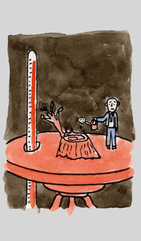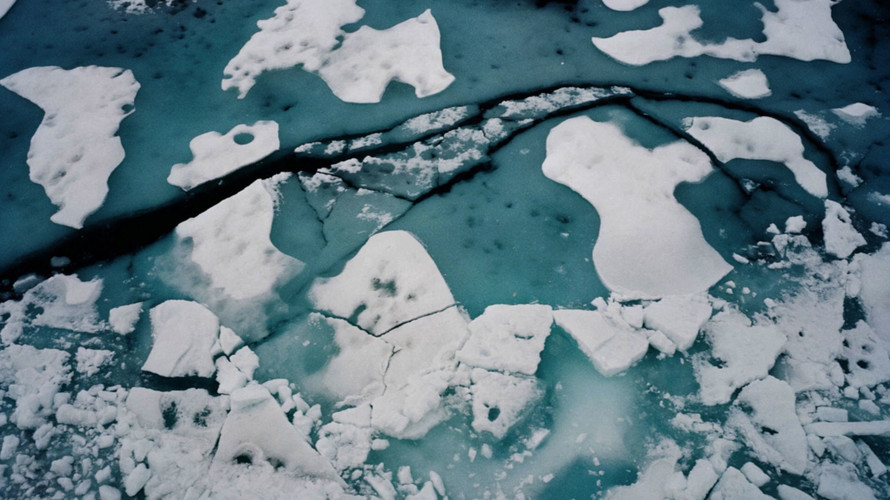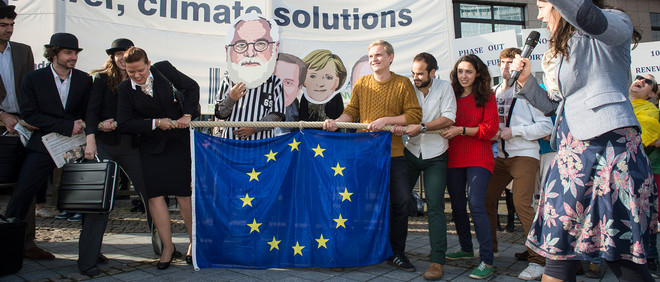The judge had not even finished reading his verdict when the first cheers broke out in the courtroom in The Hague.
Could it be true? Was the judge truly forcing the state to adopt a stricter climate policy?
The Dutch action organization Urgenda had filed suit against the State of the Netherlands in November 2013, claiming that it had done too little to prevent dangerous climate change. With each sentence the judge uttered, a verdict in Urgenda’s favor seemed all the more likely. In just 10 minutes on Wednesday, the group’s tremendous advantage over the state was evident.
Climate change is a critical problem that will have a perilous, irreversible impact on humankind and the environment over the next few decades, according to the judge. For its part, the Netherlands too will face extremely hazardous situations if the earth warms up by more than 2°C. That makes this a matter for the state to take action on, because it must protect its citizens.
What does that mean? The judge cited the climate science. It is generally accepted that if industrialized countries were to reduce their greenhouse gas emissions by 25 to 40% by 2020, the world would have a reasonable chance of preventing dangerous climate change. But under current plans, the Netherlands will have reduced those emissions by no more than 17% by 2020, the judge pointed out. “That is less than what is required,” he said.
The room buzzed with anticipation. Could it be true?
The fact that a country might only contribute to climate problems by a relatively small amount could not be used as an excuse by any single nation for proceeding with business as usual, in the judge’s opinion.
The fact that a country might only contribute to climate problems by a relatively small amount could not be used as an excuse by any single nation for proceeding with business as usual, in the judge’s opinion.
Moreover, the fact that the Netherlands is an industrialized country added even more weight to the decision, according to him; developed countries should be leading the charge against climate change. The judge went on to point out that a reduction of 25 to 40% was not unfeasible or, in all fairness, unacceptable from an economic standpoint. Surrounding countries had already set themselves similar targets and they were not going bankrupt.
More excited murmuring. Could it be true?
Yes, it was true. In the conclusion to his verdict the judge not only ruled that the state was doing too little to prevent the dangers of climate change, but also saw it as his duty to correct government policy.
“One of the fundamental principles of the rule of law is that courts have the power to control the actions of political bodies. In doing so, the courts are not engaging in politics, but rather operating within the confines of their designated domain: offering protection against unlawful acts.”
And in this case that meant redirecting the government’s climate policy. The judge imposed upon the state a mandatory emissions reduction of at least 25% by 2020.
It was a huge victory for the Urgenda claimants. All of their claims had been heard and they had prevailed on all of the major points.
Photo by Gerhard van Roon/Hollandse Hoogte

A unique case followed around the world
As soon as Urgenda filed the case, it was clear what a unique initiative this was. Never before had a nation been prosecuted for negligence in the face of climate problems, much less on such a comprehensive scale. It was covered widely not only by the Dutch press, but even more prominently in the international news media. Lawyers working on climate issues followed the case closely.
Michael Gerrard, Director of the Sabin Center for Climate Change Law at Columbia Law School, expressed his high expectations on National Public Radio’s Morning Edition. “If the Dutch court were to rule against the state in this case,” he said, “that would be a very powerful signal that would probably then lead to similar litigation in many other countries.”
The basis for Urgenda’s complaint is the simple fact that a government is obliged to protect its citizens, I wrote when the case was originally filed. Despite acknowledging that we run the risk of the climate changing to such an extent that it endangers humanity, the state had failed to radically cut emissions.
According to Urgenda, the present climate policy of the Netherlands was therefore in fact negligent and thus unlawful. The organization made that claim on behalf of the current and future generations entitled to protection from the state.
It was a legal debate with political implications. If the judge ruled in Urgenda’s favour, then the government would have to adapt its existing policy. “Legal developments could prompt changes in the political discourse,” predicted Dennis van Berkel, an environmental lawyer for Urgenda, when I spoke to him several months ago. “We are confident that the government will comply if the judge rules in our favour. And then it will not end with just this one case.”
“You don’t have to be a genius trend spotter to realize that climate law will only grow in importance as a way of forcing climate action.”
In other countries, too, activists are already looking into the possibilities for forcing the adoption of strong climate policy through the courts. “The U.S. Supreme Court has already said that ‘the risk of catastrophic harm’ as a result of climate change, ‘though remote, is nevertheless real.’ You don’t have to be a genius trend spotter to realize that climate law will only grow in importance as a way of forcing climate action,” Van Berkel says.
Roger Cox, Urgenda’s lawyer, expects the verdict to have a tremendous impact. “This is the first case in the world to clearly state that a nation cannot hide behind other nations,” he points out. “The State of the Netherlands is responsible within its borders to do whatever is necessary to prevent global warming of more than 2°C. The judge has now ruled that the dangers of climate change are extraordinarily great. That means the state’s leeway in terms of determining the climate policy it wants to enact is relatively limited. The fact that serious damage, harm, and even deaths will be suffered in the future, in the Netherlands and elsewhere, justifies the judge’s action.”
Urgenda’s claim and the State’s defence
Urgenda’s main objective force expanded emissions reductions. It was not, in fact, asking for anything more in its case than what the Netherlands had already indirectly committed to when it signed the UN Framework Convention on Climate Change in 1992, the express objective of which is to prevent dangerous climate change. In various official forums, including reports by the IPCC, that aim has been translated for industrialized countries into the target of achieving a 25 to 40% reduction in emissions. Given that the Netherlands is a relatively large per capita emitter of greenhouse gases, it should aim for a reduction of 40% according to Urgenda.
The state did not feel at all so obliged. The government agreed with the severity of the problem, as outlined by Urgenda in its complaint. But the Dutch solicitor general continued to maintain that this “was not a matter for the courts.” The problem of climate change was a global issue and it was being addressed through the international negotiation process. It was not within the purview of a national court to decide these things.
But the Dutch solicitor general continued to maintain that this “was not a matter for the courts.”
A barrage of arguments was presented. For example, was it not odd, the solicitor general asked, that the targets Urgenda wanted the courts to enforce “in the public’s interest” had already been voted down in the Lower House? In 2012 the Party for the Animals had attempted to force the state to enact a 40% reduction by introducing a resolution to that effect. “Only six members of the Lower House voted in favor of that motion,” the solicitor general wrote. “138 voted against.”
It was also important to remember, the state argued, that the climate problem was a global problem requiring an international approach. The solicitor general went on to assert that the Netherlands was taking very effective action on that front. It had signed the so-called Climate Convention in 1992 and ratified the ensuing Kyoto Protocol. It was, moreover, highly likely that the Netherlands would achieve its targets specified under the Kyoto Protocol.
Beyond that, the Netherlands was committed to the European reduction targets formulated for 2020 and 2030, continued the state in its defense. A European carbon trading system had been set up for achieving that. The Netherlands was investing in renewable energy and international climate initiatives and had concluded an Energy Agreement with ambitious goals that even Greenpeace was impressed by. Finally, the state was negotiating further climate action with all other nations, including in Paris later this year.
So, how could one claim the state was not doing enough?
Photo by Gerhard van Roon/Hollandse Hoogte

And that’s not all…
Nor should it be overlooked that the government was already putting measures in place for the event that the effects of climate change became perceptible in the Netherlands. Consecutive administrations had adopted “climate adaptation” strategies, which were already “mitigating a considerable share of the hazards associated with climate change”, according to the Court of Audit.
In summation, in the eyes of the state, Urgenda could hardly maintain that the government had acted unlawfully toward current and future generations. It remained to be seen whether the Dutch populace will in fact suffer harm as a result of climate change. And if such damages occur, who can prove that they are attributable to emissions from the Netherlands? Greenhouse gases do not observe country borders.
And if such damages occur, who can prove that they are attributable to emissions from the Netherlands? … But the judge was not convinced by these arguments.
The only thing Urgenda had to win in bringing this case, argued the solicitor general, was to force legislation on a 40% emissions reduction. And that was a matter for the political system to decide, whereby various interests are weighed against one another and policy is created to accommodate all of those interests. Courts do not make laws.
But the judge was not convinced by these arguments. The combined effect of all climate policies already set up or announced by the government would result in only 17% fewer emissions in the Netherlands by 2020.
And that was not sufficient to avert the dangers. Purely on the basis of the scientific facts on climate change and the responsibilities a state has to protect its citizenry, the court ordered that emissions be reduced by at least 25% by 2020.
Just as Urgenda had argued.
What is a just climate policy?
Implicit in the Urgenda case was the critical question of whether it was acceptable for us, within the timespan of a few generations, to destroy the environment for all of the generations that will come after us or whether a government should take action to prevent this.
The Dutch government asserts that it is sufficient to engage in action on an international level – by taking part in international negotiations and formulating European ambitions and policy goals; and also by instituting advance measures in case the rise in sea level becomes truly threatening.
The judge took it a few steps further, however. A just climate policy, in his view, consisted of doing the minimum necessary to protect your citizens. Urgenda wanted the judge to outline very specifically what that minimum action on the part of the state should entail. And he eventually did.
With this latest verdict, future generations can have a voice in the Dutch climate debate through the courts.
It is the first time in the world that a national court has issued a ruling on climate issues based on this line of reasoning. Still, the fact that the judge cited the interests of future generations in his judgment is not without precedent. There was a case in the Philippines in the early nineties filed by a group of children against the Philippine government alleging that it was allowing the archipelago’s rainforest to be decimated at an alarming rate. This was consequently endangering the living environment of future generations, the plaintiffs charged; and the court ruled in their favor.
In the time since, a group of prominent lawyers and philosophers of law has taken this principle – that the courts can be enlisted to protect the interests of future generations – and expanded on it for use in the arena of climate issues. In March it published the so-called Oslo Principles, which are meant to serve as a guide for anyone wishing to litigate climate-related matters and for judges faced with adjudicating such cases. According to these experts, many, primarily Western, states are already legally liable because their greenhouse gas emissions are far too high.
The Netherlands also had an earlier judgment issued in the name of “future generations.” In 2001 Greenpeace brought a case against the state pertaining to the rate of natural gas production in the Netherlands, arguing that the generations coming after 2030 would also need to be able to meet their energy needs. The court found that claim “sufficiently concrete” and allowed Greenpeace to represent the interests of people not yet born.
On Wednesday another important precedent was added to these historic developments. In other words: with this latest verdict, future generations can have a voice in the Dutch climate debate through the courts.
Photo by Ronald van den Heerik/Hollandse Hoogte

If everyone does their part...
“This is our dream outcome,” said Urgenda’s director, Marjan Minnesma, after the verdict. “Policy will now have to be changed in the Netherlands. We have to do more than what we have previously planned.”
It is not yet clear how the verdict can be enforced; that will be examined in the coming years. And it remains to be seen whether the requirement of 25% actually goes far enough to prevent dangerous climate change. Expectations are nevertheless high and the verdict has been hailed as “courageous and visionary” and a “game-changer in the fight against climate change.”
“This verdict also sends an important message to business,” says Urgenda’s lawyer Roger Cox. “What if people start filing claims? Have companies set aside enough money to indemnify any damages that might result from climate-related problems? That is a question CEOs and accountants should be asking themselves.”
This verdict should also cause a company like Shell to do some serious thinking, according to Cox. “Is it legitimate for Shell to dig up all the fossil fuel resources it can find, when it knows that in doing so it is contributing to heating up the atmosphere by more than 2°C?” he continues. “That kind of behavior is now being viewed in a different light.”
Obviously a court verdict in the Netherlands is not going to solve the global climate problem, but it could well be an important step, especially in light of the international repercussions it is bound to have. Climate cases are already on court dockets in Belgium and the United States. And in Norway a lawsuit against the state is being prepared. Minnesma has been called in just the past few days by people in Canada, the United States, and Australia who are also considering launching climate cases. It fills her with hope. “If every country does its part, it will be enough to prevent dangerous climate change,” she says.
—Translated from Dutch by Nina Woodson











